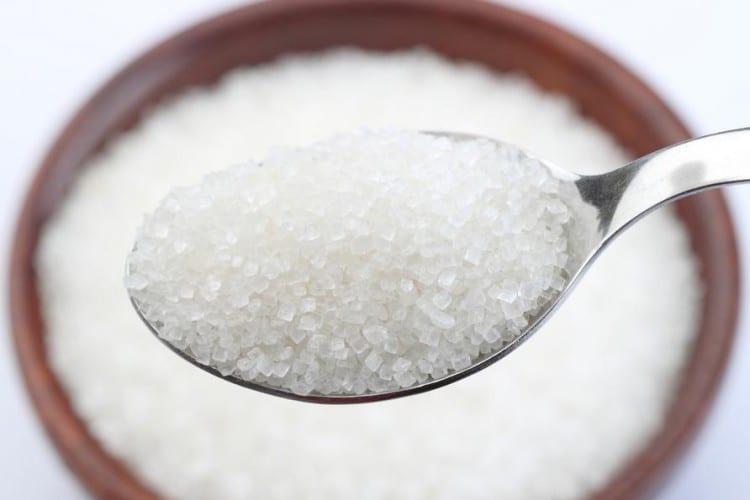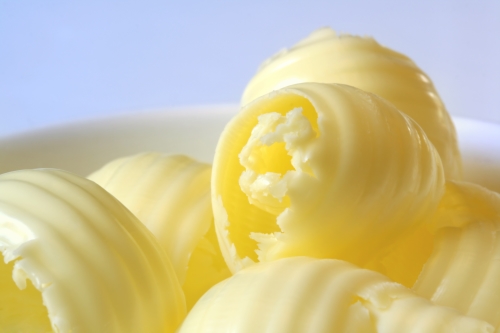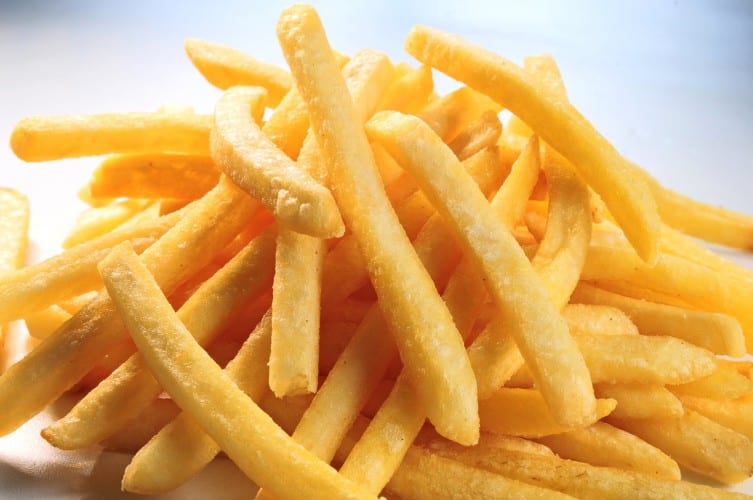Q&A
Fat or carb free?
If you are trying to lose weight, there are two clear trends when it comes to diets: either you are carb (sugar) free, or fat free. Information in the media and health blogs are, as always, contradictory and confusing so most of us just don’t know what to do!.. Or maybe we know what to do in theory, but in practice…that’s another matter.
Imagine that you choose not to eat carbs: that means no pasta, rice, bread, cookies, alcohol, honey, fruits, chocolate, juices, oatmeal, cereals and potatoes. Now, that’s pretty tough in practice, but what I really want to know is, will I lose weight if I stop eating carbs?
The process is very simple (don’t stop reading!): whenever you eat sugar, this gets broken down into one molecule of glucose and one of fructose. Every single cell in your body, in particular brain cells, need glucose for energy. That is why as soon as we eat sugar (also called sucrose), the pancreas produces the hormone insulin, which is responsible for making sure that the glucose molecules are absorbed by the cells in the body. The cells are fed, and the body is functioning properly. So far so good, right?
But what happens to the molecule of fructose?…this is a more complicated matter (don’t go away). Fructose digestion begins in the small intestine. Single fructose molecules enter into the bloodstream through the lining of the small intestine. Once in the bloodstream, fructose travels with all other absorbed nutrients to the liver to be metabolised and processed. By the end of this process, called fructolysis, your body is left with a different sugar, similar to glucose, which is the main source of energy for the body.
The problem.
The problem arises when we consume excessive amounts of sugar and the body simply cannot handle it. The pancreas gets exhausted from producing large amounts of insulin and the body becomes insulin resistant, that means, the cells don’t react any longer to this hormone and therefore do not absorb the glucose for their energy. The result is that the cells are not fed – the body becomes tired and the mind foggy. The over-spill of glucose molecules that are no longer absorbed then remain in the blood (which is why the blood then has high sugar levels that are too high).
Another problem is that, these days, we find fructose added freely to hundreds of foods such as juices, fizzy drinks, even meats such as ham, canned foods, bread, and even super healthy “natural sugar” organic products. Because we read the word “fructose” on the label, we think “Ah! Fruit sugar. that’s ok!”…well it is not. As we have seen, fructose requires a more complex absorption process which puts more pressure on the liver, turning all this overload into glucose-like molecules. So apart form the daily amount of sugar we eat every day, we also consume enormous amounts of hidden fructose in many “natural” and “healthy” products.
How does this make me fat?
When the sugar levels are too high, the extra glucose in the blood is sent to the liver. The liver can become so overwhelmed by this, that it cannot process it properly and has to find a way to store all this energy, by turning it into fat. This fat stays in the liver (causing non-alcoholic fat liver disease), and many other parts of the body (mainly in the area around the abdomen). The ultimate consequence is the onset of Type 2 diabetes, where the body is totally resistant to insulin.
So what happens if I stop eating carbs (sugars) completely?
You will definitely lose weight rapidly…as long as you can handle it. When you eliminate or severely restrict carbohydrates from your diet, your body goes into a fasting or starvation mode, and you begin to break down fat and protein for fuel, due to the shortage of glucose. In the process of fat metabolism, large numbers of ketones are formed in the liver and released into the bloodstream. According to Dr. Firkins, “this ketogenic state is an intermediate stage of starvation during which, deprived of available glucose, the brain begins to use ketones for fuel. In this state, your appetite is suppressed, fat becomes your body’s primary fuel source and you begin to lose weight”, but eventually you will lose your capacity to think straight -as glucose is the main source of energy of brain cells-, feel slow and tired, get constipated and your breath will smell, due to the over acidity of the body. Even though you will lose weight, everything will be harder to do, from intellectual tasks to physical performance.
Not a very appealing prospect…
How about Fat?
Fat is the good cop in the press at the moment. “Eating fat” makes you lose weight and apparently, “fats are good for you,” especially good quality grass fed beef, grass butter, and, eggs from grass-fed chickens. Avocados, nuts, oily fish and seeds are the patron saints of good health, as are their companions… olive, coconut and flaxseed oils.
There is only one “world-renowned cardiologist” who disagrees with this idea. He came to fame for his ideas about reversing heart disease and arteriosclerosis. Dr Dean Ornish was able to prove that by introducing a strict vegan, fat-free diet, heart disease, and more specifically the thickening of the arteries, can be reversed.
Does fat make me fat?
We now know that when people go on a fat-free diet, they actually put on weight. This, however, is not necessarily because fat makes you thin, but because people who go on a fat-free diet tend to compensate by eating too many sugary foods. Most low fat or fat-free foods in the market are loaded with sugar and sugar-like ingredients to make them more appetising. Fat-free dieters also tend to increase the consumption of salt, another interesting ingredient in our daily diet which we will tackle another time, and which is one of the main causes of weight increase.
The body cannot live without fat. It needs, at the very least, a 2 per cent fat consumption per day. An almost fat-free diet will make you lose weight, as long as you stay away from simple carbohydrates such as sugary snacks and white flour. If you eat plenty of complex carbohydrates and wholegrains as part of your diet, and consume lots of vegetables and fruits, your actual health will be more optimal and you’ll perform better physically and mentally than if you go on a strict no-carb diet. The trick is not to turn a fat-free diet into a sugar-full diet.
What does the scientific community have to say?
Many scientific studies show that it is actually the combination of fat and sugar (such as in milk chocolate or ice cream) that has a similar effect on your brain to cocaine.
Remove either and your tub of ice cream will be a lot less appetising and a lot less addictive. It’ll have fewer calories, too.
What we crave are fat/sugar combinations – chocolate, ice cream, french fries.
To see the effect of these combinations on the brain – and why they might be addictive like cocaine, scientists have used eye scans to detect the levels of dopamine, a neurotransmitter responsible for the reward reactions of the brain. Not surprisingly, the levels rise dramatically when consuming fatty, sugary foods*
* Jennifer Nasser, nutrition professor at Drexel University in the U.S.
Food manufacturers are well aware of this, and here is where the calories shoot up to the sky. The problem with our weight is not actually whether it is fat or sugar, but in processed or unprocessed foods. You will have trouble to find a natural food that contains both sugar and fats at the levels of a Big Mac or a piece of cake!
Conclusion
The ultimate diet should be based on a balanced and moderate consumption of fats and carbs.
Stick to healthy fats (avocados, oily fish, nuts, grass-fed beef, etc) and healthy carbs (complex and whole-grains)
Avoid any processed, manufactured foods. Eat natural foods.
Avoid the combination of fat and sugar together, even if it is home-made.
Strict diets excluding either fats or sugars have negative consequences, regardless of the wight loss, they can be detrimental to your health.






Leave a Reply